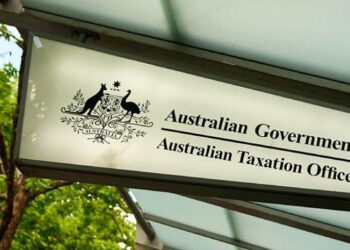Research from Super Consumers Australia reveals that more than one in three Australians with super (36 per cent) say they haven’t informed their super fund who should receive their money upon death, and just 24 per cent have made a binding death benefit nomination.
This is despite this group having an average of $101,000 in super, plus insurance benefits, according to ATO figures.
Furthermore, the regulator has found that just one in 10 people have a binding nomination, casting doubt on whether people understand the process.
A Pulse 2024 survey showed that while death benefit nominations are more common among older people, there are still important gaps.
One quarter of 45-54 year-olds still haven’t made any nomination, despite the average account balances for this age group being $149,000, and only 54 per cent of people aged 65-74 years know they have made a binding nomination.
Xavier O’Halloran, chief executive of SCA, said the most recent research indicates that more than 6.5 million Australians risk long delays for their loved ones, with the possibility that the money may not be distributed according to their wishes.
“The fact that so many Australian families are facing this uncertainty is a red flag. This is a system that’s too hard to understand and navigate,” O’Halloran said.
“Without a valid binding nomination, funds have to decide who your money goes to. That leaves families in limbo, sometimes waiting months or years to access money they are entitled to. And it’s not good enough.”
The research also found that an alarming number of Australians weren’t sure if their nomination was binding or non-binding.
It revealed that between 32 per cent and 51 per cent of people over 45 years old weren’t sure what type of nomination they gave their super fund.
Even in the oldest age group (over-65s), only 54 per cent knew they had made a binding nomination.
“Not knowing whether your death nomination is binding is a serious issue. In addition to additional delays, the fund may not pay your super to the person you want them to,” the research report read.
“An analysis of death benefit complaints made to AFCA shows that AFCA almost always disregards the wishes of the deceased contained in a non-binding nomination and makes a decision based on dependency or the legal standing of any will, in that order. Having no nomination or a non-binding nomination in place means that the super fund is likely to make its own decision about who to pay based on the circumstances at the time of death.”
SCA warned that many Australians believe they’ve secured their wishes with a binding nomination, when in fact they may not have, or it may have expired.
The association added that the current system is difficult to navigate and governed by inconsistent rules across funds, creating avoidable delays for grieving families who urgently need funds.
“The federal government must launch an independent review of how death benefits work in super,” O’Halloran said.
“Australians deserve a system that’s simple, consistent and actually delivers in their time of need.”
SCA has also urged super funds to prompt members more frequently to make (or update) a binding nomination, provide better, clearer guidance on how to make their nominations valid, and offer online nomination options that don’t expire (non-lapsing) where possible.
“This is one of the basics that super funds should be getting right,” O’Halloran added.
“People work their whole lives to build up their super and they should get to decide where it goes when they pass away.”



Yes, I would like to see more of this in schools. Howver, the issue as I see it is that unless it is just basic concepts and better maths skills that are taught, there is scope for brainwashing our students into products snd ideas that will not serve them well, on a personal level. We already have that issue in our schools, sadly. Things are also not static in finance. Possibly Economic and business studies being touched on for at least a short compulsory period could be enough to broaden thought processes and horizons.
This is why I’ve been calling for years for this to be taught in schools. A person’s home and their super are likely to be their largest assets, and given the current status of housing affordability, probably just super. So, why aren’t people (students) educated on the rules before they enter the workforce? (Noting that many would have likely started work at high school age).
Education is the key to minimising the unexpected outcomes of family members left behind to deal with the legal maze, challenges and battles of a deceased person’s super. Education would also inform them on investment strategy selection and insurance options. Expanding to other legal areas, e.g., signing an employment contract; agreement to rent; would also be greatly beneficial.
We should also look at simplifying the rules around super death benefits, for sure, but I’m not holding my breath on such reforms happening soon. In the meantime, let’s educate (whether in schools or at home).